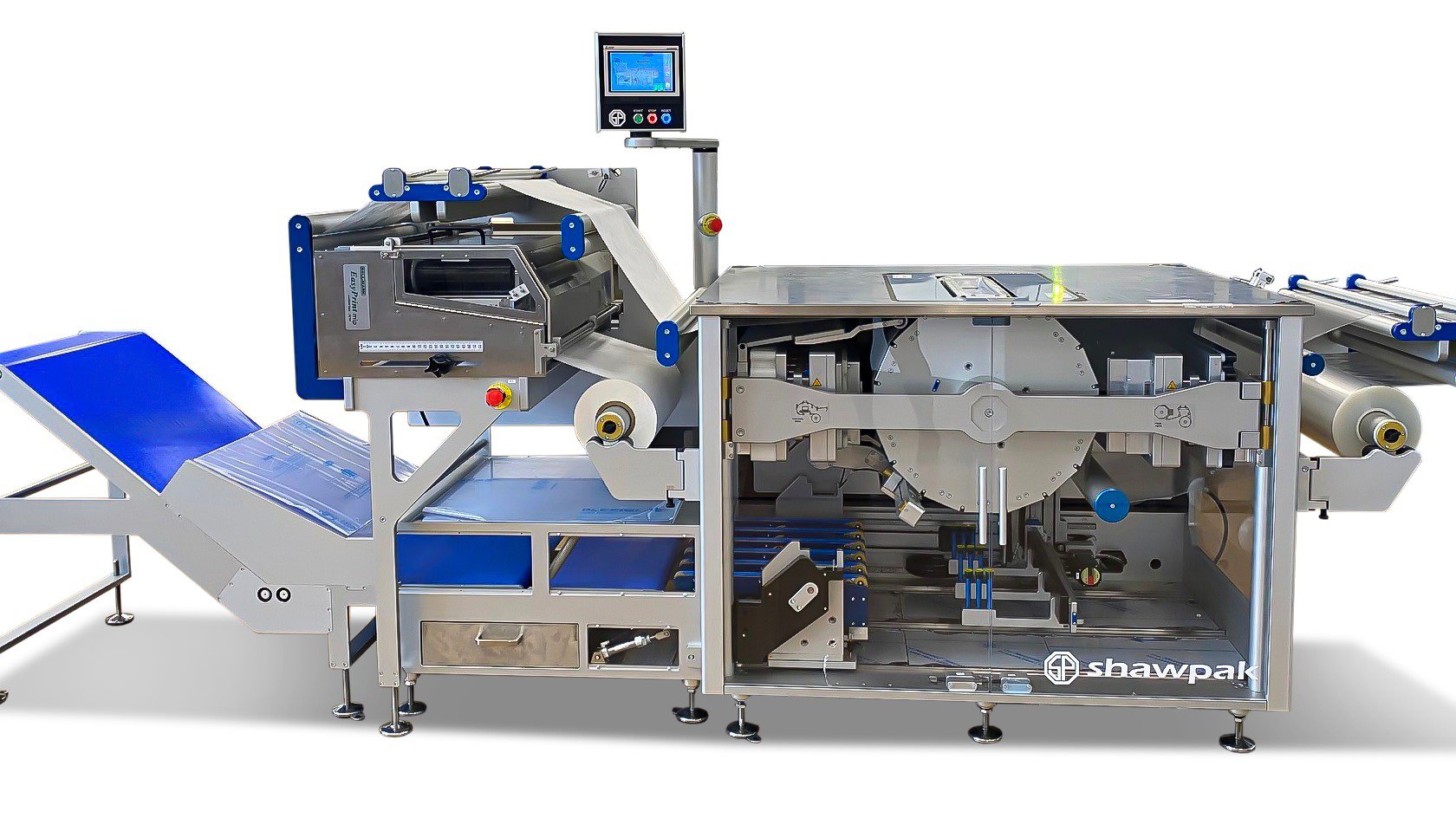Shawpak was formed in 2013 when David Shaw, CEO, concluded that thermoforming machines – traditionally 6 m long and linear – could actually be condensed into a smaller footprint, but with the same output; an idea that eventually resulted in the company’s revolutionary rotary thermoformer.
Unlike traditional linear thermoformers, Shawpak’s rotary thermoforming machine uses a drum to form, fill and seal the medical devices. By using a drum, machine size can be significantly reduced, meaning it takes up far less cleanroom real-estate.
Extensive portfolio
The Shawpak thermoformer, which comes in a range of sizes, can produce both rigid and flexible packs, and is joined in the company’s portfolio by pouch machines (three- and four-side seal), rigid blister machines, desktop pouch sealers, shuttle machines and linear thermoforming machines.
According to Tony Crofts, sales & marketing director: “Our machines are typically purchased by medical device manufacturing companies, pharmaceutical companies, and robotic/automation companies to integrate into their packaging lines. The size of the drum thermoformer is very attractive to customers, due to the cost premium of clean room space. They can fit multiple drum-based machines into the space taken up by a traditional linear machine.”
Flexibility & sustainability
“Flexibility of tooling is also important, with ours offering straightforward procedures to swap it out, ultimately reducing downtime. Sustainability is a big thing too, and we are proud that our rotary machine is zero waste when making flexible blister packs. The material width is the same as the tooling, so packs are made without any waste, not only saving money, but also removing the need for a waste bin. The machine is also single phase, so does not require special power infrastructure.”
The company, which has recently migrated all of its control solutions over to Rockwell Automation, was also a shining light during and after the Covid pandemic, by giving its customers greater control over their supply chains.
“Post Covid there were huge issues with the supply of packaging materials, especially pouches,” Crofts explains. “We worked very closely with customers, got to the root of their issues and created a pouch-making machine that would allow them to remove their reliance on downstream pre-made-pouch suppliers. This proved Incredibly popular, so we looked to develop other solutions, one of which addressed the shortage in pre-made rigid blister packs.
“As lead times started getting longer, we heard that some customers were buying and renting premises to store the packaging required for future production. So, in a similar move to that of the pouch-making machine, we developed a rigid-blister-making machine that customers can vertically integrate into their lines and build packages from roll stock.”
Medical Device industry standard
Both machines (and others in the company’s portfolio) use control and automation solutions from Rockwell Automation. “We recently migrated our control systems over to Rockwell Automation, as not only did we gain new employees who bought with them significant in-depth knowledge of the Logix environment, but it is also the standard for the US market, which is where many of our exports head.
“The Rockwell Automation solution has given us additional functionality compared to our previous supplier, while also allowing us to meet customer requirements more thoroughly. Put simply, it takes the technical questions off the table. Adding to this, most user-requirement specifications (URS) either stipulate Rockwell Automation controls, or they have list functional requests that we know Rockwell Automation can match.
“The functionality of our control systems now allows us to offer almost anything that anyone would request. Connectivity played a big part in our migration too. Our previous supplier did not ‘speak Ethernet’, which means even adding a printer was not easy.”
Regulatory compliance – now and in the future
“Finally, CFR21 11 compliance is essential. Because we’re in the medical market, we have to offer validation and interrogation of systems settings and data-export capabilities. And Rockwell Automation gives us the confidence that we can tick all the necessary boxes.
“Medical device requirements (MDC) are forever growing and having access to a comprehensive control system that you can interrogate for operational data is critical. We have to think about the next five to ten years and what it will take for customers to be and remain compliant.”
Discover our comprehensive portfolio of OEM and machine design solutions, here.

